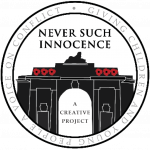
The Visualising War podcast recently interviewed Lady Lucy French, Founder and Chief Executive of Never Such Innocence, a charity which gives children and young people a voice on conflict. The work that they do connects in so many ways with what Visualising War is all about.
Never Such Innocence (NSI) was originally founded to involve young people in the centenary commemorations of the First World War. Discussions of war are often dominated by adults; but children also have important things to say about conflict, either from experiencing it themselves or through thinking about the stories they have heard and the images they have seen. Lady French wanted to ensure that young people had an opportunity to share their views and play an active role in remembering the Great War as the centenary drew near, so she and her team launched a competition for children aged 9-16, inviting them to create poetry, art or song that captured how they felt about that historic conflict.
They were overwhelmed by responses, and in the space of just a couple of years received over 11,000 entries from 47 different countries, some of which have been curated into a book. Some children focussed on personal stories, passing on family memories; others reflected on the conflict more broadly. They communicated horror, respect, sorrow and admiration; and many asked questions. Big ones, like ‘Why?’ and ‘What happens next?’[i]
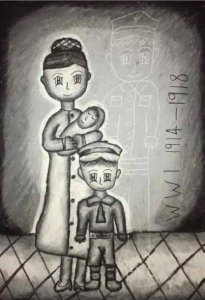
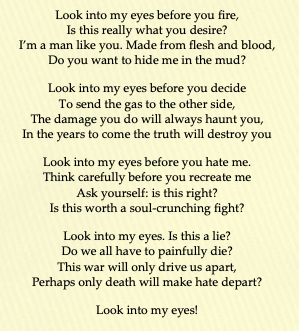
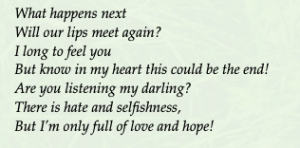
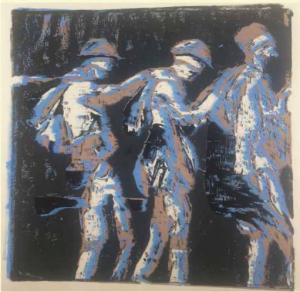
One winning poem ended up being turned into a play, performed by a professional cast at the Crucible Theatre in Sheffield and now touring the UK; and the poet has since been commissioned to write poetry for the Invictus UK trials and an Armistice Remembrance ceremony at the National Cemetery of Ireland at Glasnevin Cemetery.
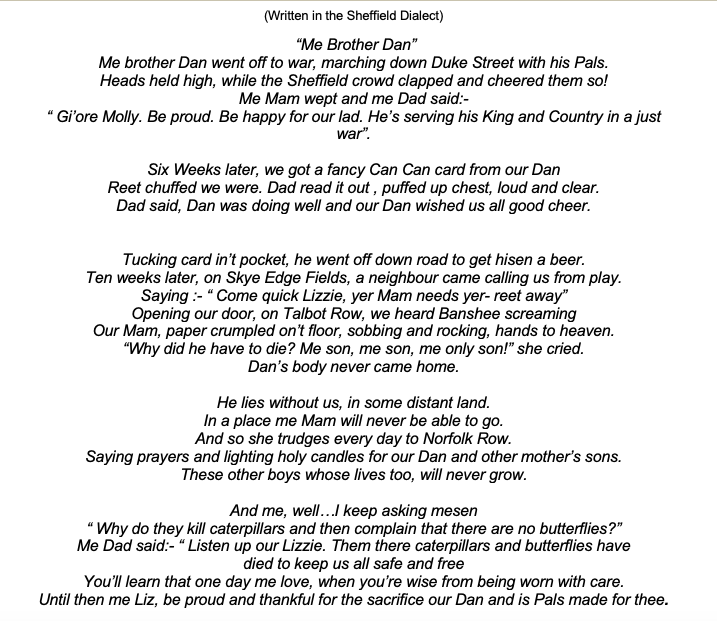
The NSI team realised that their project was fulfilling an important need: children all around the world clearly wanted to communicate their feelings about war. So instead of wrapping things up after the centenary commemorations, they expanded the competition, increasing the age range and widening the focus. From 2019, the charity has invited people aged 9-18 to reflect on conflict of all kinds in art, poetry, song and speech. Rather than defining ‘conflict’ in the competition outline, they have left it open for entrants to interpret that term: so alongside interstate conflicts and civil wars, young people have reflected on genocide, knife crime, women’s rights protests, the Black Lives Matter movement, the ‘war’ on Covid-19 and socio-political tensions arising from the pandemic.
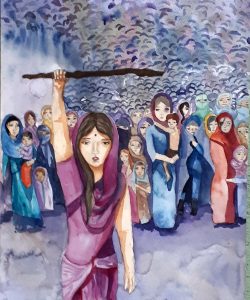
Growing up, we are all shaped by the war stories told by the adults around us (whether family, teachers, politicians or the media). What is extraordinary about many NSI competition entries is how they not only question but move well beyond our traditional habits of visualising war. They offer unexpected perspectives, amplify unheard voices and help us look at conflict in new ways.
These fresh perspectives come from all around the world: young people from over 100 different countries have submitted work to NSI to date, and that number grows each year. Some depict their personal experiences of terror, loss and displacement; others imagine what war has been like for people in distant times and places. As well as critical reflection, many pieces show great emotional maturity; and just as striking is the empathy that they communicate for others suffering through conflict.
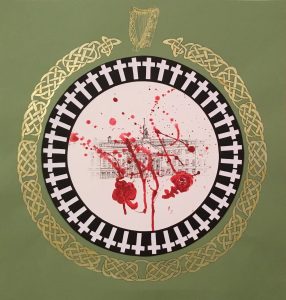
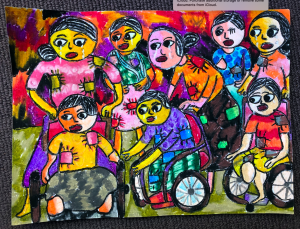
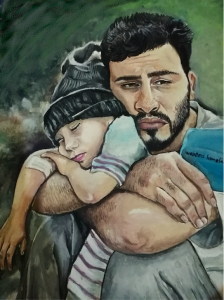
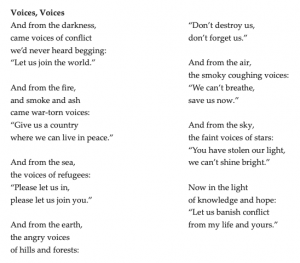
NSI does not just have a global reach: it strives to foster international dialogue, running workshops, visits and events which bring children from different countries together. They do not simply want to give young people a voice on conflict: they want to facilitate ongoing conversations, empowering the next generation of decision-makers to understand conflict from each other’s points of view.
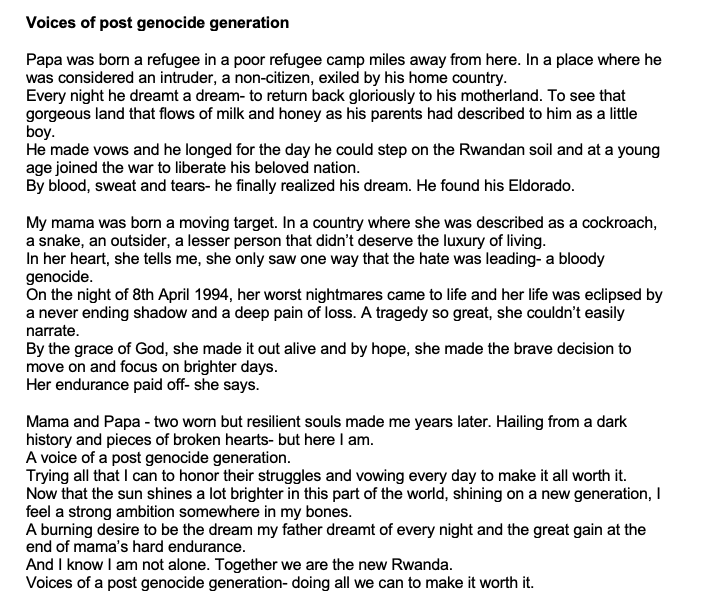
Crucially, the charity also works to give young people an audience – one that is intergenerational as well as international. Through workshops on art, speech, poetry and song-writing, they help participants build confidence and communication skills. The team runs community events where children can share their reflections on conflict not just with each other but also with local councillors, MPs, Armed Forces personnel and other policy-makers. Competition winners even have opportunities to address heads of state. The UK Prime Minister recently described the project as providing world leaders with an important ‘to do’ list. Visualising War is interested not just in how war stories work but also in what they do to us: narratives have impact. In providing young people with platforms to tell their own war stories, NSI is giving them an opportunity to shape how others think, feel and behave and even to set political agenda at the highest levels.
The growing collection of ‘war stories’ which NSI is curating represents an extraordinary archive of how young people today visualise conflict.[ii] It has a lot to teach us about historic as well as contemporary habits of imagining and understanding war; and it has a lot to teach us about conflict itself – its immediate impacts, and the ways in which even distant memories of war influence our mindsets and identities. Above all, perhaps, it has a lot to teach us about the power of storytelling. Amplifying different voices on conflict can help mitigate or prevent it in future. Next year’s competition theme will be ‘Life After Conflict’; we should listen carefully to the stories that young people want to share.
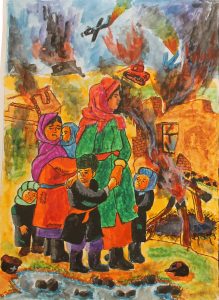
If you want to find out more about Never Such Innocence, you can listen to our full podcast episode here. For more information, you can also visit NSI’s website, read their blog, sign up for their newsletter and find out how to support the charity.
Alice König 9.4.21
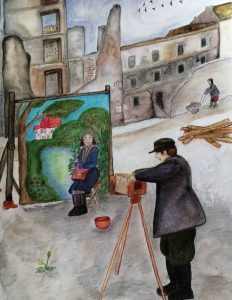
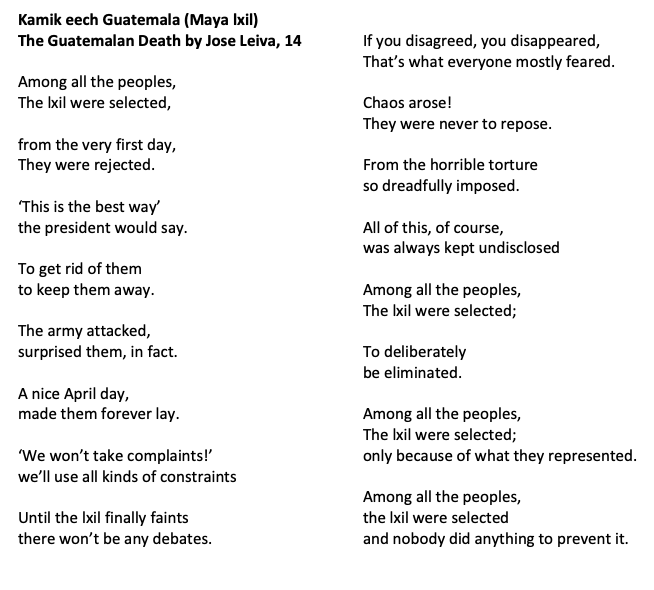
[i] Each year, NSI has produced a Winners Booklet, showcasing some of the extraordinary work they have received.
[ii] One strand of their work, giving Armed Forces children opportunities to articulate how they feel about war and the jobs that their parents do, is now the basis of a research project looking at the mental health benefits of this kind of storytelling.
